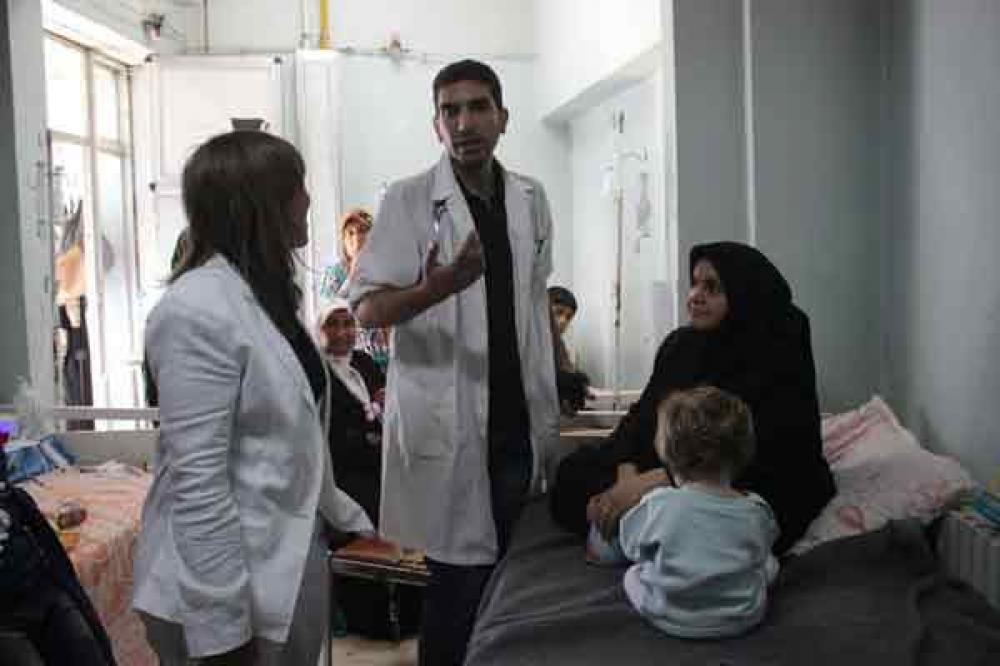Just Earth News | @Just Earth News | 25 Oct 2017, 05:01 am Print

UNICEF/Khuder Al-Issa
“We see health not only as the absence of disease and not only a question of access to services, but in fact the right to be human is a manner that you have your physical and mental integrity upheld,” Kate Gilmore said in an interview with UN News.
Similarly, health care workers are part of the “machinery of human rights defence,” yet are increasingly being targeted for doing their jobs.
“In conflict settings, there has been a marked spike in the targeting of hospitals, of doctors, of ambulances and of nurses. And this is not only quite unconscionable,” the Deputy High Commissioner said, noting these attacks are also against international humanitarian law and the basic rules of war to which each Government has signed up by virtue of being a member of the United Nations.
“But in other settings, too,” she continued. “In non-conflict settings, health workers who work with communities that are subjected to terrible bigotry, those working with those suffering leprosy, historically health workers providing services to those living with HIV and AIDS, workers whose priority is sexual and reproductive health.”
Gilmore noted “a pattern across the globe of health workers being targeted for providing compassionate, humane care rooted in medical science.”
She denounced such attacks calling them “wrong, unfair and unjust.”
Gilmore, along with Assistant Secretary-General for Human Rights Andrew Gilmour, will participate at a dialogue on Tuesday at the UN Headquarters in New York on how human rights, including the right to health, are reflected in the 2030 Agenda for Sustainable Development.
- Alarming projection: Global breast cancer cases could cross 3.5 million by 2050, shows study
- Exam stress to emotional distress: Study reveals the dark side of academic pressure
- Vegetarian diet linked to lower risk of five major cancers, study finds
- Ukraine’s health system under fire: Attacks spike 20% in 2025, WHO warns
- A dog’s loving lick turned deadly — She woke up without her limbs





-1763561110.jpg)
